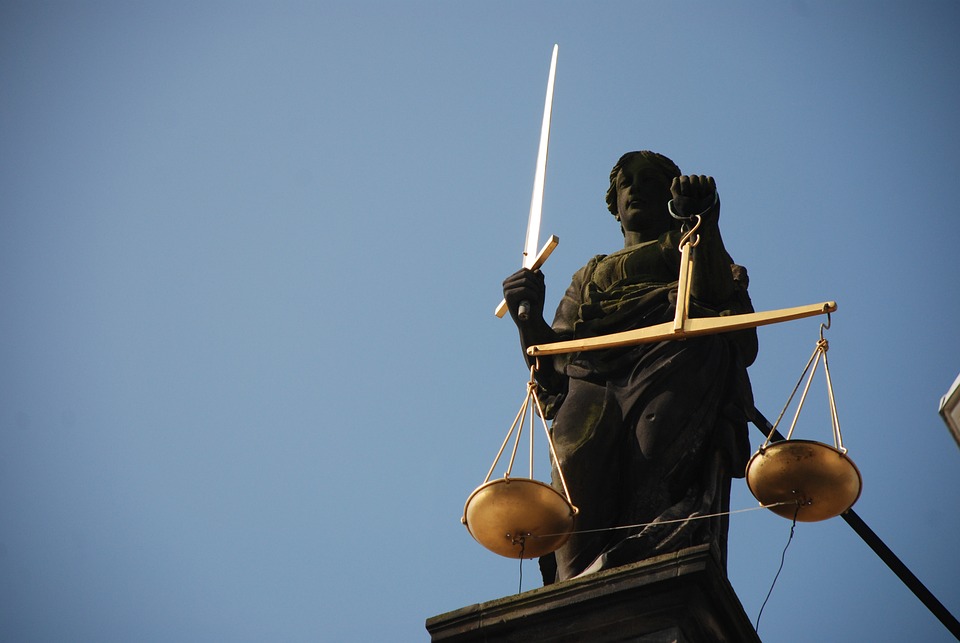LOS ANGELES, March 25, 2024 /PRNewswire/ — While broadly supporting public disclosure, the United States Attorneys’ Office is seeking to redact the names of former City Attorney Mike Feuer and other City and DWP leadership from approximately 1,400 pages of warrant materials in connection to a now-closed investigation.
The government’s investigation came in the wake of the DWP’s botched launch of a new billing system in 2013 that cost taxpayers hundreds of millions of dollars.
The records are being sought in a legal action by Consumer Watchdog and the Los Angeles Times set for hearing on April 12, 2024 before federal District Court Judge Stanley Blumenfeld Jr.
Download government’s legal brief here.
Download Consumer Watchdog and the Los Angeles Times’ Reply Brief filed late last week here.
In their Response Brief, government prosecutors argued that City officials who were investigated by the FBI but ultimately not charged with a crime should have their names redacted to protect their privacy and related interests.
As noted in Consumer Watchdog’s Reply Brief filed late last week:
“[W]hen it comes to misconduct by public officials in the course of performing public duties, particularly officials occupying the upper-echelons of the government like former City Attorney Mike Feuer, Chief Deputy City Attorney Jim Clark, Mr. Kiesel, and members of the DWP Board of Commissioners, there are no ‘privacy, reputational, and due process concerns’ sufficiently compelling to overcome the strong presumption and interests in favor of public disclosure.”
Ultimately, four City officials were sentenced in connection with the DWP scandal. However, significant questions remain about the roles other key officials played in the City’s misconduct, including former City Attorney Mike Feuer.
“The right of access to judicial records is central to the public’s ability to keep a watchful eye on the workings of public agencies, and that right is never more important than in cases involving serious misconduct by public officials acting on the public’s behalf,” said Consumer Watchdog staff attorney Ryan Mellino. “The public has both a right and a need to learn the identities of public officials who engaged in the unethical and illegal conduct that cost taxpayers millions of dollars.”
The government prosecutors also seek to redact the names of so-called “victims” like “former Special Counsel Paul Kiesel” who himself was involved in the underlying unethical and illegal activity according to government documents.
In their Reply Brief, Consumer Watchdog and the Los Angeles Times wrote:
“Perplexingly, the USAO considers former Special Counsel Paul Kiesel, who himself was a key player in the underlying unethical and illegal activity, to be a ‘victim’ of the extortion scheme that he participated in and helped to cover up. This illogical conclusion raises serious questions about the identities of the ‘other victims or intended victims of crimes’ the USAO seeks to protect with its proposed redactions. . . . The people of Los Angeles are the real victims of these crimes. It is their interests that the Court should protect.”
In late 2014 in an attempt to take control of the ever-worsening DWP billing debacle, the City Attorney’s Office hatched a scheme to sue itself through a collusive “white knight” lawsuit, in which the City Attorney’s Office controlled the litigation nominally brought on behalf of DWP customers against the City. The lawsuit ultimately settled on terms favorable to the City.
Following the collusive litigation settlement, an employee of Special Counsel Paul Kiesel threatened to expose the City’s misconduct unless she was paid off. According to court records, unnamed “senior members of the City Attorney’s Office” directed the extortion payment to be made in the amount of $800,000. Mr. Kiesel made the payment on behalf of the City according to government prosecutors.
As noted in the Application to Unseal Court Records filed on February 21, 2024, the Los Angeles Times previously reported that “the end of the government’s case is prompting a new round of questions. Critics ask why certain individuals — including high-ranking personnel in the city attorney’s office who remain unidentified in prosecutors’ public court filings — escaped punishment.”
Lawyers for Consumer Watchdog and the Los Angeles Times argued the public has a strong interest in assessing why prosecutors made the charging decisions they did, particularly where those decisions were made about highly influential and powerful public officials who were not charged, while lower ranking officials were charged.
Tim Blood of the law firm Blood, Hurst, O’Reardon LLP—who like Consumer Watchdog has been a key figure in exposing the scandal since 2014—and open records expert Kelly Aviles joined lawyers for Consumer Watchdog in prosecuting the legal action to unseal the FBI warrants.
SOURCE Consumer Watchdog
Originally published at https://www.prnewswire.com/news-releases/government-prosecutors-seek-to-protect-the-privacy-of-city-officials-entangled-in-web-of-corruption-related-to-dwp-billing-scandal-says-consumer-watchdog-302098485.html
Images courtesy of https://pixabay.com





